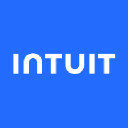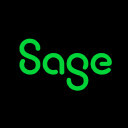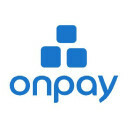Maximizing Efficiency and Profits with the Best Accounting Tools for Real Estate Industry
They trust us:





Best Accounting Tools For Real Estate Industry

(source: https://images.app.goo.gl/YF1Z1J8T2gRzF1av5 )
Real estate is one of the most profitable industries in the world. It is not just about selling properties but also about managing them. They need to keep track of their financial data. This includes the amount of profit they make, the expenses they incur, and the money they have on hand. Accounting tools can help real estate companies with these tasks.
Accounting software has improved over time and now it can be used for both personal and professional purposes. Real estate companies should not just look at the numbers. They should also consider how accounting tools help them make better decisions.
What is Quickbooks?
QuickBooks is an accounting software that helps businesses manage income and expenses, invoice and accept payments, and pay employees. It offers a range of plans and features, including payroll solutions and receipt capture.
What are the features of Quickbooks?
QuickBooks is an accounting management software designed for businesses of all sizes to manage their finances effectively. Its key features include invoicing, bill tracking, inventory management, expense tracking, preparing and printing checks, and tax preparation.
QuickBooks offers unlimited users, bank feeds, and integration with over 750 business apps. It is intuitive and easy to use, even for new users. The software allows businesses to track their income and expenses, create purchase orders, and manage cash flow.
It also offers free mobile apps, customer support, and a dashboard that outlines the most critical financial data, such as profit and loss and expenses. Additionally, QuickBooks can be used to track inventory in real-time, create reports, and manage accounts receivable and payable.
The software is available in different editions that cater to the specific needs of different types of businesses, such as QuickBooks Online Plus Plan, QuickBooks Desktop, and QuickBooks Accountant. Overall, QuickBooks is a comprehensive accounting management software that helps businesses simplify their financial tasks, so they can focus on the bigger picture.
What is the pricing of Quickbooks?
The pricing of Quickbooks varies depending on the specific product and plan that you choose. QuickBooks Online offers various pricing plans, ranging from $25 to $150 per month. QuickBooks Desktop offers several options, including QuickBooks Pro at $399.99, QuickBooks Premier at $649.99, and QuickBooks Enterprise at $1,213.92 per year for one user.
QuickBooks also offers a 30-day free trial for most of its products, allowing users to test out the software before committing to a subscription.
What is Sage?
Sage is a software company offering a range of accounting, payroll, and business management solutions for small and medium-sized businesses. Their tools are designed to simplify financial processes and provide businesses with greater control and visibility over their operations.
What are the features of Sage?
Sage is an accounting management software that helps businesses keep track of their financial data. Some of the main features of Sage include purchase orders, invoicing, payments, bank feeds, account reconciliation, and inventory management.
With Sage, businesses can automate these processes and eliminate manual data entry, saving time and reducing errors. Sage also offers essential bookkeeping and accounting features like cash flow management, expense tracking, and invoicing.
The software is available in two affordable plans, Sage Accounting and Sage 50cloud, which include multiple users and customizable dashboards for quick access to important data. Sage Accounting also offers expense tracking, invoicing, cash flow management, and payment processing features.
On the other hand, Sage 50cloud offers more advanced features, including job/project management, fixed asset management, vendor management center, and revenue recognition and management. Sage is cloud-based, allowing users to access their financial data from anywhere and at any time. Sage has mobile apps that let users access most of their core functions.
What is the pricing of Sage?
Sage offers multiple products and services, so the pricing varies based on the specific tool:
Sage 50cloud: Offers three subscription plans that can be customized with add-ons. New customers can save 40% for the first year.
Sage Business Cloud Accounting: Offers different pricing plans, and new customers can get 70% off for the first six months.
Sage Website: Provides a solution called Sage Website Standard for businesses that are new to the industry and looking to establish a web presence. No pricing information is provided for this solution.
Sage Accounting: Offers the ability to set up different types of prices for products and services. No specific pricing information is provided.
Sage 50: Offers an inventory and services pricing tool that allows users to update prices in a specific price list. No specific pricing information is provided.
What is OnPay?
OnPay is a cloud-based payroll software that makes it easy to pay employees, automate tax filing, and keep track of benefits. It offers simple pricing with no hidden fees, and provides award-winning customer support.
What are the features of OnPay?
OnPay is a cloud-based payroll solution that helps small businesses automate tax filing and payment workflows. Its features include unlimited monthly pay runs, employee self-onboarding, automated payroll taxations and scheduled pay runs, employee portal for updating information, onboarding and accessing past pay stubs and tax forms, mobile-optimized design, customizable integrations with QuickBooks, Xero, and time tracking apps, and report designer with custom reporting.
OnPay integrates with most popular software including accounting programs such as QuickBooks Online, and Xero, as well as time and attendance data like TSheets, Deputy, and Humanity. The payroll software is designed to be simple, clear, visually attractive navigation for both the admins and the employees with multiple reporting options.
OnPay also includes features such as direct deposit, paper check, and prepaid debit card payment options, free accounting and time-tracking software integration, multi-state payroll that includes all 50 states, multiple pay rates and schedules, and garnishments.
It is an affordable, comprehensive solution for small businesses that want to streamline their payroll management.
What is the pricing of OnPay?
OnPay offers a simple and affordable pricing structure that includes all of their features for a low monthly cost. The pricing includes a $40 base fee plus $6 per person per month, and this pricing remains consistent regardless of how many employees are being paid.
This all-inclusive pricing means that customers can access unlimited pay runs, 24-hour payroll platform access, tax filings and payments for all 50 states, and a full set of HR tools without having to worry about hidden fees or tiered pricing.
What is ZarMoney?
ZarMoney is a cloud-based accounting software that offers a range of features such as sales tax automation, bank reconciliation, inventory management, invoicing, and reporting. It also provides customizable dashboard, user permissions, and text/email alerts to help businesses of all sizes manage their financials efficiently.
What are the features of ZarMoney?
ZarMoney is an accounting management software that offers various features to its users. One of its main features is its scalability, as it can cater to the needs of both small businesses and large enterprises. The software provides a range of accounting tools, including invoicing, inventory management, purchase orders, bank reconciliation, and financial reports.
Additionally, it offers a customer portal for users to view and pay their invoices online. The software also provides multi-currency and multi-language support, which can be helpful for businesses with international operations. It also offers customizable dashboards and real-time reporting, enabling users to access real-time financial information for better decision-making.
The software has a user-friendly interface and allows users to easily import and export data from other accounting software. Moreover, the software offers integrations with other applications such as PayPal, Shopify, and WooCommerce, which can help streamline business operations.
Overall, ZarMoney provides a comprehensive set of features for managing accounting and financial operations, making it an ideal choice for businesses of all sizes.
What is the pricing of ZarMoney?
ZarMoney offers simple and transparent pricing for their accounting software. The pricing details are as follows: Entrepreneur plan costs $15 per month for one user with unlimited transactions, same features as small business, and U.S. based customer-service.
Small Business plan costs $20 per month, includes 2 users, $10 for each additional user, unlimited transactions, and U.S. based customer-service. ZarMoney also offers a 30-day free trial for their software.
What is Webgility?
Webgility is an accounting automation software that integrates with QuickBooks Online and various commerce apps like Amazon, Shopify, and eBay. It helps streamline tedious accounting tasks and inventory updates to save time and money.
What are the features of Webgility?
Webgility is an accounting management software that offers a wide range of features to help businesses manage their finances more efficiently. Some of the main features of Webgility include automatic accounting, inventory management, order management, shipping management, and multi-channel selling.
Webgility’s automatic accounting feature helps businesses to automatically import sales and expenses data from different channels and automatically reconcile accounts. The inventory management feature allows businesses to easily track inventory levels across multiple channels, set reorder points, and automate the reordering process.
The order management feature enables businesses to manage orders from multiple channels in one place, automate order processing, and print packing slips and shipping labels.
The shipping management feature allows businesses to compare shipping rates from different carriers, print shipping labels, and track shipments. Lastly, the multi-channel selling feature enables businesses to sell their products across multiple channels such as Amazon, eBay, Walmart, and Shopify, among others.
In summary, Webgility is a robust accounting management software that offers businesses a range of features to manage their finances, inventory, orders, and shipping across multiple channels. With Webgility, businesses can streamline their accounting processes, reduce errors, and save time and money.
What is the pricing of Webgility?
Webgility offers multiple pricing options based on the edition of the software and the user’s business requirements. The pricing starts from $15 and goes up to $249 per month. The vendor provides a free trial of Webgility.
The plans offered by Webgility include a Pro plan, which costs $79 per month, an Advanced plan, which costs $199 per month, and a Premium plan, which costs $329 per month. The prices mentioned here are subject to change and users can visit the vendor’s pricing page to view more details on exact pricing.
What is Bench?
Bench is a cloud-based bookkeeping software designed to help small businesses manage their finances. It uses Plaid to connect financial accounts and offers secure insights to save time and effort.
What are the features of Bench?
Bench is an accounting management software designed to simplify bookkeeping and financial reporting for small business owners. Some of the main features of Bench are:
Automated bookkeeping: Bench automatically syncs with your bank and credit card accounts to categorize transactions, track income and expenses, and reconcile accounts.
Professional bookkeepers: Bench assigns a dedicated team of bookkeepers to handle your accounting tasks, freeing up your time to focus on growing your business.
Accurate financial statements: Bench prepares monthly financial statements, including balance sheets and income statements, to give you a clear picture of your business’s financial health.
Tax time support: Bench provides tax season support to ensure that your business is prepared for tax filing.
Real-time financial insights: With Bench, you can track your business’s financial performance in real-time through the Bench mobile app or online portal.
Collaborative features: You can collaborate with your bookkeeping team through the online portal to keep track of tasks, review reports, and provide feedback.
User-friendly interface: Bench’s software has an intuitive, user-friendly interface that makes it easy to navigate and access the information you need.
Secure data storage: Bench uses bank-grade security protocols to ensure that your financial data is protected and secure.
Integration with other business tools: Bench integrates with a range of popular business tools, such as Stripe, PayPal, and Shopify, to streamline your bookkeeping process.
Personalized service: Bench offers personalized service with a dedicated bookkeeping team to ensure that your business’s unique accounting needs are met.
What is the pricing of Bench?
Bench offers two pricing plans: Essential and Premium. The Essential plan costs $249 per month when billed annually, or $299 per month when billed monthly. The Premium plan costs $399 per month when billed annually, or $499 per month when billed monthly.
What is Quaderno?
Quaderno is a tax automation software that automates sales tax processes for SaaS companies, e-commerce entrepreneurs, and digital content creators. It integrates with top payment processors and shopping carts to make tax management simple and streamlined.
What are the features of Quaderno?
Quaderno is an accounting management software that provides various features to streamline accounting processes for businesses. Some of its main features include:
Automatic Tax Calculations: Quaderno automatically calculates taxes based on the location of the customer and the products or services sold, ensuring accurate and up-to-date tax calculations.
Invoice Generation: Quaderno allows users to create and customize professional-looking invoices for their business, which can be sent directly to customers.
Payment Processing: Quaderno integrates with popular payment gateways, making it easy for businesses to accept payments online and automatically track and reconcile payments.
Multi-Currency Support: Quaderno supports over 25 currencies and automatically converts prices and taxes into the customer’s local currency, reducing the complexity of international transactions.
Sales Reporting: Quaderno provides detailed sales reports that can be filtered by product, location, date range, and other parameters, helping businesses make informed decisions based on sales data.
Subscription Management: Quaderno supports recurring billing and subscription management, making it easy to create and manage subscription plans and automatically charge customers on a regular basis.
Automated Reminders: Quaderno sends automated reminders to customers for overdue payments, helping businesses improve their cash flow and reduce the risk of unpaid invoices.
Overall, Quaderno simplifies accounting processes for businesses, allowing them to focus on growing their business and improving their bottom line.
What is the pricing of Quaderno?
Quaderno offers three pricing plans: Startup plan, which costs $49 per month and allows up to 250 transactions per month in three jurisdictions; Business plan, which costs $99 per month and allows up to 1,000 transactions per month in five jurisdictions; and Most popular plan, which costs $149 per month and also allows up to 1,000 transactions per month, but in ten jurisdictions. The company also offers a 7-day free trial for all plans without requiring a credit card.
What is Melio?
Melio is an online payment solution for small businesses to pay and get paid with ease. It enables businesses to pay vendors, contractors, and suppliers via bank transfer, debit card, or credit card for free.
What are the features of Melio?
Melio is an accounts payable solution that helps small businesses manage online payments via bank transfers and debit or credit cards. It offers a range of features to simplify the payment process, including payment scheduling, automated data synchronization, reporting, invoicing, payment reminders, and more.
With Melio, users can conveniently pay bills online for any business expense, whether it’s an invoice from a contractor or service provider, or a bill such as electricity or taxes. Melio allows users to add bill details by taking a photo, uploading a file, entering details, or connecting QuickBooks online.
Additionally, Melio supports QuickBooks synchronization and automated scheduling, allowing users to connect with their accounting system and schedule payment transactions automatically. Melio also offers 2-factor authentication to ensure secure payment transactions, balance sheet management, billing and invoicing, budgeting, calendar management, contact management, CRM integration, customer management, dashboard, data export, data import, data visualization, expense tracking, external integrations, forecasting, and inventory tracking.
Overall, Melio is a user-friendly accounting management software that provides businesses with a streamlined, efficient payment process.
What is the pricing of Melio?
The pricing for Melio is as follows:
ACH bank transfer: Free
Mailed check (first 2 checks each month are free): $1.50
Credit/debit card payment: 2.9%
What is Gusto?
Gusto is an all-in-one payroll, HR, and benefits solution for businesses of all sizes. Their platform offers automated time tracking tools and transparent pricing with no hidden fees.
What are the features of Gusto?
Gusto is a cloud-based accounting management software that offers several features to help businesses manage their financials. Some of the main features of Gusto are:
Payroll management: Gusto offers an easy-to-use payroll management system that automates payroll calculations, tax filings, and direct deposits. It also helps businesses stay compliant with federal, state, and local payroll tax regulations.
Benefits management: Gusto enables businesses to manage employee benefits such as health insurance, retirement savings, and paid time off. It also offers an online benefits enrollment system that makes it easy for employees to enroll in benefits programs.
Time tracking: Gusto provides a time tracking tool that helps businesses manage employee work hours and track paid time off. It also integrates with payroll management to automate time calculations for payroll processing.
HR management: Gusto offers HR management features such as employee onboarding, document management, and compliance tracking. It also provides tools to manage employee data and track performance.
Accounting integration: Gusto integrates with popular accounting software such as QuickBooks and Xero to streamline financial management processes.
Reporting and analytics: Gusto provides a range of reporting and analytics tools that give businesses insights into their financial performance and help them make informed decisions.
Overall, Gusto is a comprehensive accounting management software that offers payroll, benefits, HR, time tracking, and accounting integration features to help businesses manage their financials efficiently.
What is the pricing of Gusto?
The pricing plans for Gusto start at $40 per month plus $6 per person, per month for their Simple plan. For more complex needs, Gusto offers Plus and Premium packages, which cost $60 per month plus $9 per person, per month and pricing available on request, respectively. They also have a limited time offer for their Plus package, which offers a 25% discount for the first 6 months.
What is Homebase?
Homebase is a workforce management software designed for small businesses, offering tools for scheduling, time tracking, team communication, payroll, and HR. It aims to simplify and streamline the management of hourly teams, allowing businesses to save time and increase efficiency.
What are the features of Homebase?
Homebase is primarily a scheduling, time tracking, and payroll preparation software designed for local small businesses. While it does not specialize in accounting management, Homebase provides several useful tools to help businesses manage their finances, including integration with popular payroll services such as QuickBooks, ADP, and Gusto.
Homebase also helps track labor costs in real-time, streamline the scheduling process, and simplify communication between team members. Additionally, Homebase has easy-to-use time clocks and supports inventory tracking, which is helpful for businesses with a physical location.
Overall, Homebase is a comprehensive HR solution that aims to simplify daily administrative tasks for small businesses, and although it may not have all the advanced features of a specialized accounting software, it can help businesses streamline their financial operations.
What is the pricing of Homebase?
The pricing for Homebase is as follows:
Basic: Free
Essentials: $19.95/month/location or $14/month/location (billed annually)
Plus: $49.95/month/location or $35/month/location (billed annually)
All-in-One: $99.95/month/location or $70/month/location (billed annually)
Full-service payroll: Add payroll to any plan for $35/month + $5/active employee.
What are Accounting tools?
Accounting tools are software that is used to record financial information. They are used by accountants, tax preparers and businesses. Accounting tools are used by accountants for their professional purposes. These tools help them keep track of financial transactions and manage their workloads more efficiently.
Intuit QuickBooks is one such software that helps people manage their finances at work or home. It helps users create invoices, track expenses, set up payrolls, and more easily manage their finances than before. This software can be used by accountants or tax preparers or even businesses to keep track of their finances. It can also be integrated with a company’s accounting system so that transactions are automatically recorded in the system.
The main advantage of using accounting software is convenience because you don’t have to spend time recording transactions manually in your books and on paper. Another advantage is accuracy because these programs help you keep track of all your transactions in real-time so that you don’t miss any details or mistakes when it comes to record keeping.
Why should Real Estate companies use Accounting tools?

(source: https://images.app.goo.gl/UqHVcVFxej13uAUf8 )
Real estate is a business that requires a lot of accounting tools. The industry is one of the most complicated and high-risk businesses to run. Real estate companies need to keep track of their finances, inventory, and other company-related data. This can be done through a variety of accounting tools that are available in the market today.
Real estate businesses are constantly changing and adapting to the ever-changing market conditions. The accounting tools:
- Provide the necessary information that can be used in decision-making processes.
- Help real estate companies make better decisions, which leads to more profit and success.
A number of these tools are automated which makes them easier for real estate companies to use. However, these automated tools can also be unreliable which is why it’s important for real estate companies to use accounting software that has been audited by an independent third party.
Real estate accounting is a complex process that requires a lot of time and effort on the part of the accountant. It is a difficult job that requires people who have extensive knowledge in accounting and financial statements. With the help of accounting tools, it becomes much easier for them to do their job efficiently and effectively.
What features should Accounting tools include for Real Estate agents?

(source: https://images.app.goo.gl/e4JcwYk5n5kXvHud6 )
Real estate agents need accounting tools that are easy to use and can help them manage their business. They should have features such as the ability to pay bills, track expenses, send invoices, and more.
As the industry is experiencing a shift in the way people are buying and selling properties, it’s important that accounting tools include features that cater to real estate agents. There are several features that should be included in these tools.
- A tracking tool that allows you to keep track of your daily tasks, such as showing listings, visiting open houses and more.
- A time tracker that allows you to see how much time you have spent on each task so you can keep track of your productivity.
- A mapping feature that allows users to create a map of their area and see which properties are for sale or already sold so they know where they should be focusing their efforts.
- A property management system that allows users to manage properties with ease
- A budgeting tool that is easy to use and provides accurate data
- A tax calculator that generates accurate tax reports with just one click
Real estate agents spend a lot of time on accounting. They need to keep track of their expenses, income, and the property’s value. In order to do this efficiently, they need to have all the necessary tools at their disposal.
What type of integrations are important with Accounting tools for Real Estate agents?

(source: https://images.app.goo.gl/SUytHJP3BbwmSZdg9 )
Real estate agents need to be able to manage their business and the accounting side of it. With this in mind, they need tools that can help them keep track of all the different aspects of their work. Here are some important integrations that real estate agents should look for.
- Accounting tools with real estate management software – This is a must-have integration because it will allow agents to manage all aspects of their business, including accounting and other tasks.
- Accounting tools with CRM software – This will allow agents to stay on top of the people they work with and all the leads they have coming in, as well as managing all aspects of a transaction from start to finish.
- CRM integration with social media management tool – This will help you stay on top of what your audience is saying about you online, as well as how you can use social media for marketing purposes.
Integrations with other apps such as Zillow, Trulia and Realtor help real estate agents save time by providing an interface that helps them better manage their listings and properties on these platforms. These integrations help agents manage their listings more efficiently as they can access listings from these platforms in a more streamlined manner.
What are the benefits of using Accounting tools for Real Estate companies?
Accounting tools are beneficial for real estate companies as they enable them to manage their financial data. They:
- Enable the company to make better decisions and plan for the future.
- Can manage their financial data and make better decisions.
- Keep track of their income and expenses.
- Help make decisions about how much to borrow and from whom.
- Can help managers track cash flow and other critical metrics, helping them make better strategic decisions about how to allocate resources.
- Can help explain trends in prices or sales activity so that investors or developers are able to effectively plan growth.
- Can also help you identify potential legal issues that may need to be addressed in order to protect your company’s assets.
Overall, it can help identify and manage risks associated with real estate investments.
How to choose the right Accounting tool for your Real Estate business?

(source: https://images.app.goo.gl/PD9p1mNExEo2cuQ4A )
With different accounting tools, you can choose the one that is best for your business. There are many options available and it is important to know what each tool offers you. Choosing the right accounting tool for your business can be challenging. You need to consider:
- How the software will integrate with your existing systems and how it will help with your day-to-day operations.
- What type of information do you need
- How do you want this information organized
- What type of reports do you need
- Which features are most important to your business
Accounting software can be a confusing and overwhelming task for a business owner. With so many options and features to choose from, it is hard to know which one is best for your business.
How much does the Accounting tools cost for the Real Estate industry?

(source: https://images.app.goo.gl/4NofY4zA6FV97hHp6 )
The cost of accounting tools for the Real Estate industry is quite high. It would be difficult for a small business to afford it. The most expensive accounting tools can cost more than $10,000 per year. They may be worth the investment if they help you save time and generate accurate data because they are designed to do this.
However, there are cheaper alternatives available in the market that can help you manage your finances and keep track of your company’s finances too. The pricing starts at $5,000 for smaller companies that only have one or two employees and goes up to $250,000 for larger companies with 100+ employees.
Why are Accounting tools important for the success of your Real Estate business?
The accounting tools that are being used today have been developed to make it easy for the users to access and manage their businesses. Accounting tools are important for the success of your Real Estate business because:
- They can help you manage and track your finances.
- They also provide a good overview of the financial health of your business.
- They help you stay on top of your finances and also help you manage your company’s cash flow.
Accounting software helps with managing the day-to-day activities such as invoicing, payroll, and budgeting.
How to implement Accounting tools as a realtor?
Accounting tools are the backbone of any business. They help to keep track of the financials and make sure that your business is not losing money. Real estate agents can use these tools to make sure that they are not losing money on their properties and to keep track of the revenue and expenses.
Implementing accounting tools as a realtor is very important for the success of your business. It will help you to manage your finances and ensure that you are not losing money due to lack of proper management. In order to implement accounting tools, it is important to first identify the type of software that you need. There are three types of accounting software:
- Accounting software for real estate agents (RETAX)
- Accounting software for property managers (property management system)
- Accounting software for landlords (rental ledger)
There are multiple accounting software options available today, but there is no one-size-fits-all solution. It all depends on your specific needs as a realtor and what software will work best for your business or income level.
Which type of real estate companies should buy Accounting software?
Accounting software is a must-have for any company in the real estate industry. It helps them to keep track of their finances and manage their assets. But which type of real estate companies should buy Accounting software?
There are many types of real estate companies that should buy accounting software. These include firms that own and manage residential properties, commercial operators, and developers.
Final thoughts on using Accounting tools for real estate agents

(source: https://images.app.goo.gl/aLPo9hqiKDmbL1DR9 )
There are many accounting tools that real estate agents can use to help them succeed. These tools can include financial statements, audits, and tax reports. The most important thing for an agent to do is to use the right tool for the job. If an agent uses a tool that is not appropriate for their work, they could end up making mistakes that could hurt their business.
When accounting tools are used for real estate agents, it is important that the tools are used in an accurate and unbiased manner. Many of the same rules that apply to other businesses should be followed, such as double-entry bookkeeping and financial statements.
Other important aspects to consider when using accounting tools for real estate agents include project management and budgeting.
Top 10 Accounting tools for real estate agents
| Quickbooks | |||
| Sage | |||
| Zarmoney | |||
| Bench | |||
| Gusto | |||
| Webgility | |||
| Homebase | |||
| Melio | |||
| Onpay | |||
| Quaderno |










